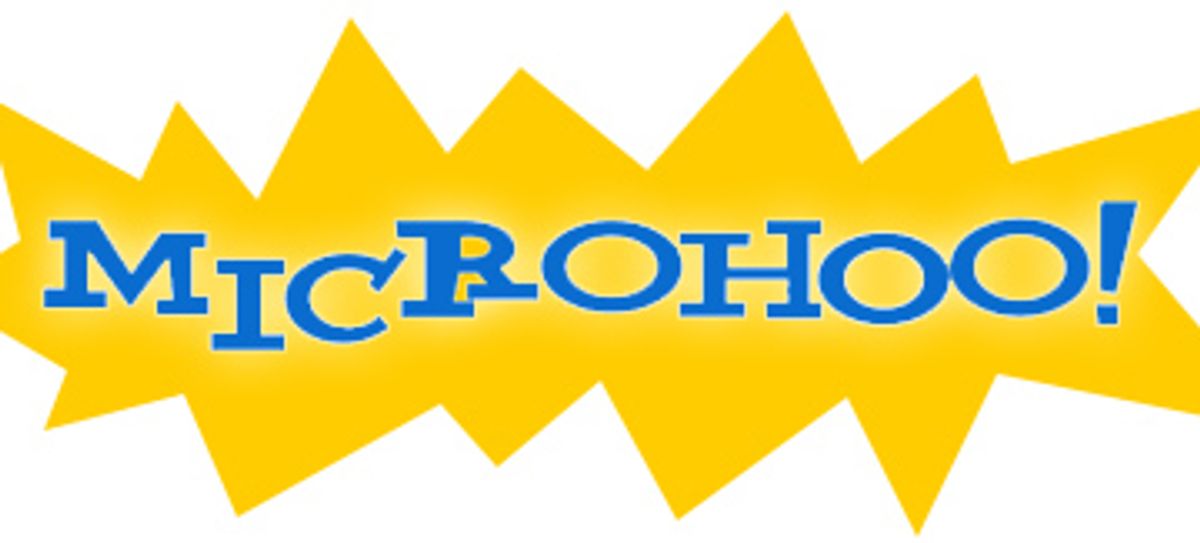
Early this morning Microsoft held a press call to explain its unsurprising but nevertheless staggering $44 billion takeover bid for Yahoo. Bill Gates was not on the line.
CEO Steve Ballmer and Ray Ozzie, Microsoft's chief software architect, held forth on the brilliance of their plan, while Gates, the co-founder and ruthless tactician who made Microsoft the most efficient cash-generation machine this side of the U.S. Mint, was likely off somewhere trying to set right the wrongs of capitalism.
So you've got to wonder: What would Bill do? Was this Bill's idea? Did he have to be persuaded? Obviously he's not opposed to it (though Gates plans to leave Microsoft in July, he will remain the chairman of its board). But does this move jibe with Gates' early-'90s pugilism, with the take-no-prisoners élan of the Microsoft that everyone once feared? Is it the move of a company getting its mojo back?
Or is this the midlife crisis of a softer, less nimble firm, a company that now has more money than smarts, coasting on last generation's success -- a company desperate to show the world that it still kind of matters?
Check out the talk about the deal on the blog aggregator Techmeme: You can find literally hundreds of insta-opinions, all pointing different ways. But though one has to be optimistic -- who would ever have guessed you could feel sorry for Microsoft, that you could root for it as the underdog and only backstop to Google's complete takeover of all digits everywhere? -- there seems little cause for happiness here.
I can't see how this ends well.
The essential problem is that what Microsoft and Yahoo lack, and what Google's got in spades, can't be gained through merger. Google's secret to success is not so secret at all. It has created the ultimate expression of Silicon Valley capitalism -- a company of engineers, a firm that elevates technical innovation as its core mission.
Google's eating everyone's lunch simply because it makes things faster, better and more useful than anyone else -- and Microhoo will have no better way than Yahoo and Microsoft did to replicate that engineering feat.
Even the most ardent Microsoft fan wouldn't accuse the firm of doing well by creating great things. Microsoft's biggest successes -- Windows, Office -- have been the product not of revolutionary code but of brilliant marketing and, more important, savvy business tactics.
Check out the memos the Justice Department unearthed from Microsoft a decade ago, if you must. Faced with the threat of the Java programming language and the Netscape browser, Gates' first instinct was not to out-code his rivals but to shut them out through the marketplace.
In this light, the Yahoo merger is classic Microsoft -- classic Gates. Crushed by Google in search and online ads, facing the possibility of a long-term decline in its operating system and business software monopolies (at the hands of "cloud" software like Google Apps and mobile OSes from Apple and Google and Symbian), and failing to create any competitive products of its own, the company responds by doing what it knows best -- picking up a rival at exactly the right time, a brilliant stock move.
If the deal goes through -- and there's really no reason to guess it won't -- Microsoft will have purchased Yahoo for a fraction of what it was once worth.
It will get a great deal for its small outlay, too. Microhoo would have about 30 percent of the search market, compared to Google's 60 percent, and the the second largest online ad network. In Yahoo, Microsoft is also getting the most popular e-mail, news site, finance and photo sites on the Web.
But many of these sites have been imperiled by competition from Google. Look at the market for online maps: For years, Yahoo made a good living as No. 2 in that business, capturing 20 percent or so of the market, behind MapQuest, which has long remained above 50 percent.
But then came Google Maps with a feature that instantly made every other site obsolete: You could move the map around with your mouse! Yahoo and MapQuest took an Internet-eon to respond. Too late: Google's already eclipsed Yahoo's market share, and it is quickly gaining on MapQuest.
Google's engineers are similarly disrupting every other corner of the tech business. MapReduce, the company's home-brew code to process applications across its thousands of machines in parallel, has got traditional database engineers in a sweat. Along with the Google File System and numerous patents on electrical efficiency and heat management, MapReduce gives Google a great advantage in the development of data centers, the backbone of Internet computing.
Its search business, too, rests upon a Manhattan Project of academic talent, and consequently just keeps lapping rivals -- gaining share, increasing accuracy, taking over the world.
How will Microhoo be any better than either Microsoft or Yahoo were in fighting this relentless culture of creation?
On the conference call, Microsoft execs were juiced about the "synergies" of the combined firms. It's hard not to hear that word as a euphemism for nothing else left to try.



Shares